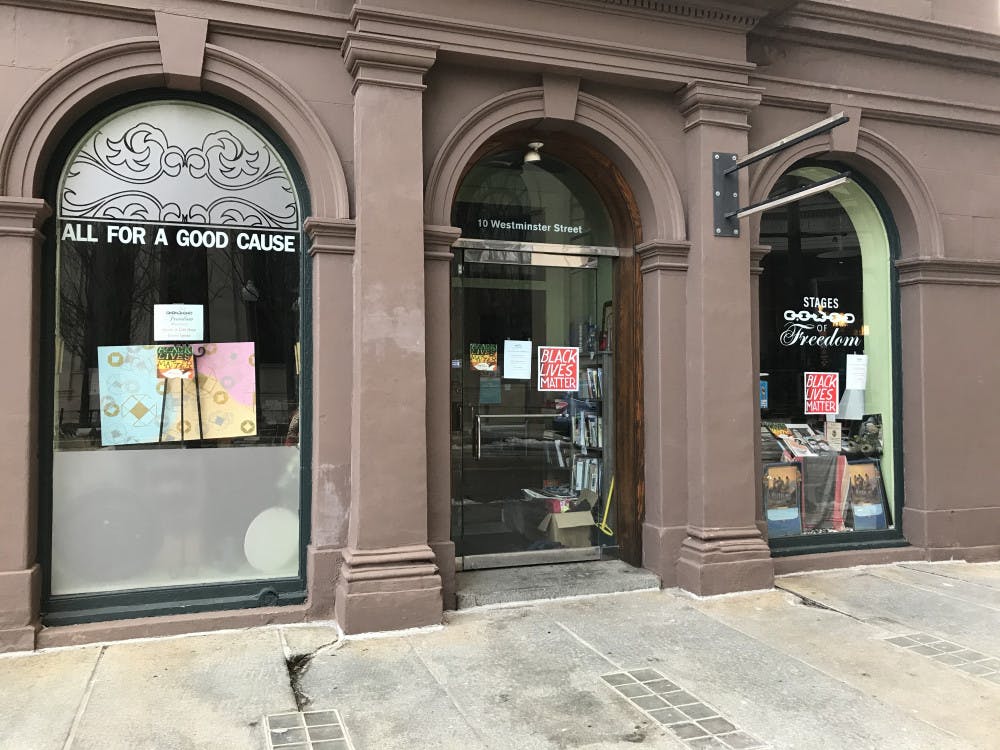Celebrations of Black History Month will look different this year as a result of the COVID-19 pandemic, but despite challenges posed by mostly-remote operations, organizations focused on Black, Indigenous and people of color plan on reaching more people this year than they have in the past.
Though some organizations found difficulty fundraising in a virtual format, national conversations about the Black Lives Matter movement and the accessibility of events through Zoom have increased participation in events about Black history and racism throughout the year.
This renewed interest will likely continue throughout Black History Month, said Soni Stokes, executive director for the Rhode Island Black Heritage Society. “We’ve done several virtual events and actually doubled the attendance” compared to past events, Stokes said.
In the past, the Rhode Island Black Heritage Society has held walking tours, lectures, exhibits and workshops during Black History Month and throughout the year. This February, the organization will debut an online exhibit on Black entrepreneurs and lead anti-racism workshops for private companies and schools over Zoom. Additionally, the organization will continue to work with Mayor Jorge Elorza’s African American Ambassador Group Truth Telling Committee, which examines the historical experiences of BIPOC in the state.
Stokes explained that though the Rhode Island Black Heritage Society had planned on transitioning all in-person activities to a digital format prior to the pandemic, the switch to virtual operations nevertheless came at a cost due to the loss of ticket sales and presentation fees for free online events.
Still, “there has been a slight uptick in grant availability that perhaps wasn’t there before, so we’ve sort of broken even through the whole thing,” Stokes said.
For the non-profit Stages of Freedom, which provides community and mentorship services to POC youth as well as year-round educational programming for the public, grants have been harder to come by and fundraising for online events has been difficult.
Finding people to attend events has always been hard work; the same is true now that these events are mostly online, Executive Director of Stages of Freedom Ray Rickman said.
In the past, Stages of Freedom has hosted lectures, organized book giveaways to local students and created pop-up exhibits in honor of Black History Month. The organization also hosted a luncheon to fundraise for its swim lesson program for POC youth and to finance its museum and other community programs.
While educational presentations and lectures translate easily to Zoom, Rickman said that the same was not true of a virtual meal: “If we had had a (remote) luncheon, people would not have paid.”
Despite there being fewer traditional fundraising opportunities, Rickman added that there continues to be substantial interest in Stages of Freedom’s online programming. The organization will host a lecture by Elizabeth Anderson, a University of Michigan philosophy professor, on housing integration in America on Feb. 12. Rickman said they hope to have 400 people attend the lecture live on Zoom and have thousands more watch the recording on YouTube.
“If this was a normal Black History Month, we’d have it at the (Rhode Island School of Design) museum auditorium, which only seats 208 people,” Rickman said. He explained that the content of the lecture will be just as impactful as it would have been in-person, and that participation will be just as high. “Nothing is lost,” he said.
While the pandemic has prompted nonprofits to shift their programming online, some community groups have maintained in-person programming and also reached more people than in the past.
“The pandemic has made our programming grow,” said Heather Hole Strout, executive director of the Dr. Martin Luther King Jr. Center in Newport. “We’ve served more people than we ever have in our 99-year history. We’ve had to just continuously pivot in how we do things to meet the demand as well as the restrictions that were placed before us.”
The Dr. Martin Luther King Jr. Community Center has continued in-person educational, community and hunger services, such as operating a food pantry, throughout the pandemic.
“We’ll continue (providing our services) in February and beyond safely,” Hole Strout said.
In the past, the center’s programming for Black History Month included screening the documentary film “Freedom Riders,” hosting a Black history trivia night and teaching kids in their afterschool program how to make soul food.
While the center won’t be hosting events for the community this year, their in-person enrichment and education programs will incorporate Black history throughout the month, “especially in our preschool,” Hole Strout said.
As the pandemic has changed the way that groups are teaching Black history, it has also changed awareness of racial issues in general, according to Rickman. He said the pandemic led to a surge in racial awareness that hadn’t been seen before because “we have had time to pause and think.”
“For the first time in my life, in my long, wonderful, African-American lifetime, the majority of white people are saying they care,” Rickman said.
He called for continued concrete action and said that the anti-racism work of the past year is only the beginning.
“I am impressed with the American people’s ability to say it is time to deal with racism and inequality,” Rickman said. “I am impressed with all these institutions promising to create change. But I am not impressed with what we’ve done in the last eight or nine months. It’s really too little.”
Stokes agreed that the increased dialogue around racial justice in 2020 was a positive step, and emphasized the importance of discussing and celebrating the Black experience beyond Black History Month.
“The importance of Black History is simple: It is American history,” Stokes said. “If we’re not teaching it, we’re not really teaching American history.”

Katy Pickens was the managing editor of newsroom and vice president of The Brown Daily Herald's 133rd Editorial Board. She previously served as a Metro section editor covering College Hill, Fox Point and the Jewelry District, housing & campus footprint and activism, all while maintaining a passion for knitting tiny hats.





